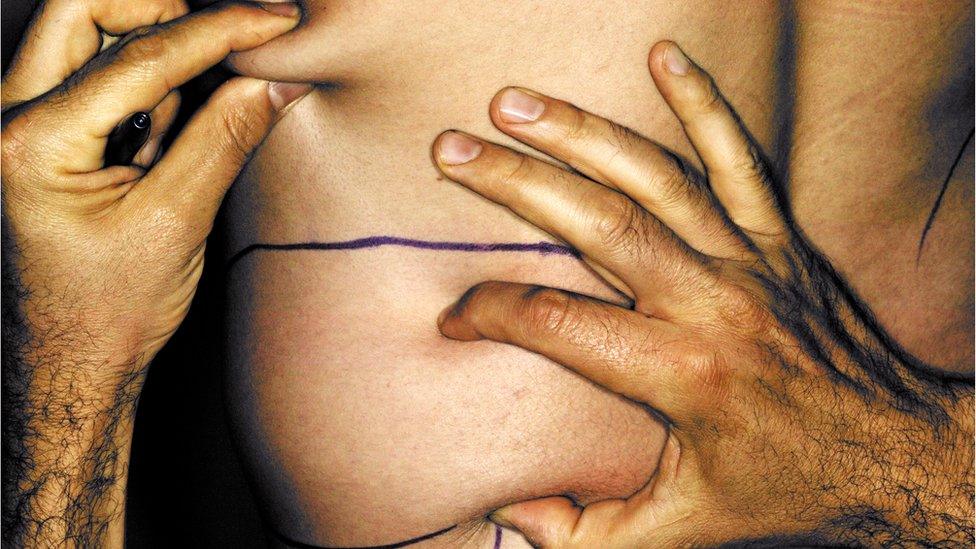Cosmetic surgery check-list for patients
- Published

The Royal College of Surgeons is offering patients seeking cosmetic surgery practical advice about how to pick the right hospital and doctor.
Its website, external now has a checklist to help patients recognise and avoid rogue companies offering dodgy deals.
Questions to ask include whether the surgeon who will be carrying out the operation is certified and insured and what to expect in terms of recovery.
Patients should also consider if their own expectations are realistic.

Dawn is unable to close her eyes - she has to tape them shut in order to sleep
Dawn Knight, 48, from County Durham, underwent botched eye surgery at a private clinic in 2012.
She had wanted a blepharoplasty or eye lift to remove some excess skin from her lids.
But the surgeon took too much skin away, which meant she was unable to close her eyes and had problems with her vision.
She has since had corrective treatment on the NHS.
She says: "My experience has been one long nightmare, and I feel a sense of loss for all the time I've spent trying to correct the problems I've suffered.
"I had no idea my surgeon was not insured to work in the UK or that he was self-employed.
"People need to know the risks of procedures.
"The fact that medical knowledge is needed for these procedures gives people a false sense of security, and it's easy to be misled."

The new online resource is funded by the Department of Health, in the wake of the breast implant scandal of 2012, when it emerged tens of thousands of British women had been fitted with unsafe silicone implants that were prone to rupture.
The website advises: "Never feel rushed or pressured into giving your consent. Be wary of surgeons or staff who try to convince you to go ahead."

Some 400,000 women across the world were fitted with faulty PIP implants
There were more than 51,000 cosmetic procedures performed in the private sector in Britain last year alone.

What to check
Meet the surgeon and make sure they are certified and insured to do the procedure
Find out all the possible costs - including dealing with any complications
Check with the surgeon that the cosmetic result you want is actually achievable
Find out what the surgery actually involves
Weigh the risks against the benefits
Find out what to expect in terms of recovery - how long will you be looked after and supported

Mr Stephen Cannon, vice-president of the RCS, said people should do their research and think twice before opting for a cosmetic procedure.
"The vast majority of cosmetic surgery is carried out in the private sector and many people do not realise that the law currently allows any qualified doctor - surgeon or otherwise - to perform cosmetic surgery, without undertaking additional training or qualifications," he said.
"Our advice is that if you are thinking of having some kind of work done, make sure you consult a surgeon who is trained and experienced in the procedure you are considering.
"Look them up on the General Medical Council's register."
- Published12 April 2016

- Published21 January 2014
